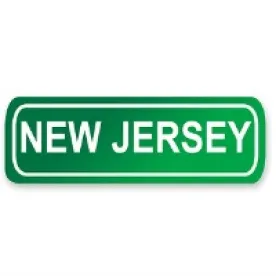Under New Jersey’s current statute of limitations, N.J.S.A. §2A:14-1, all construction defect claims, i.e. property damage claims, must be filed within six years from when the potential claimant knew or should have known he or she had a claim. Tempered only by the equitable doctrine referred to as the “discovery rule,” which stops the limitations clock from running under certain circumstances, New Jersey’s six-year statute applies equally to all property damage claimants. However, a bill working its way through the legislative process in New Jersey may change the game for common interest properties, including co-ops, community associations, and condominiums.
Bill A4903, which was first introduced in October 2020, would amend N.J.S.A. §2A:14-1 to automatically toll the statute of limitations’ period for condominiums, co-ops, and other “planned real estate development associations” until an election is held, and the owners take majority control over the governing association from the sponsor-developer. The latest text of the proposed amendment specifically states:
“The period of time for the filing of a claim by a condominium association, cooperative corporation, or other planned real estate development association against a developer or any person acting through, on behalf of or at the behest of the developer under subsection a. of this section, shall be tolled until an election is held and the owners comprise a majority of the board pursuant to paragraph (3) of subsection a. of section 5 of P.L.1993, c.30 (C.45:22A-47), or subsection d. of section 2 of P.L.1979, c.157 (C.46:8B-12.1). Any cause of action involving a condominium, cooperative, or other planned real estate development under the provisions of subsection a. of this section that has not been subject to a final judgment dismissing the claim as of the effective date of P.L. , c. (pending before the Legislature as this bill) shall be subject to the terms of this subsection.”
The proposed bill would not only toll the statute of limitations for newly developed associations, but would also apply to claims filed by associations prior to the bill’s passage so long as those claims have not been subject to a final judgement.
The introduction of this proposed bill is most likely the Legislatures’ response to the New Jersey Supreme Court’s 2017 decision in The Palisades At Fort Lee Condo. Ass’n, Inc. v. 100 Old Palisade, LLC, 230 N.J. 427 (2017). In Palisades, the New Jersey Supreme Court outright rejected the Appellate Division’s holding (and the position of Plaintiff) that the six-year statute of limitations could not begin to run before owners gained full control of the condominium association from the developer. In reviewing New Jersey’s case law on the issue, the Supreme Court found that “an owner of a building cannot convey greater property rights to a purchaser than the owner possessed.” The court went on to explain that “if the building’s original owner does not file a construction-defect lawsuit within the six-year limitations period from accrual of an actionable claim, the purchaser taking title has no right to revive a lapsed claim. . . . The statute-of-limitations clock is not reset every time property changes hands.”
In essence, the Supreme Court opened the door for developers (the original owners of associations’ common property) to potentially delay transitioning control to the owners to allow the statute of limitations to tick away any potential construction defect claims the association may have had. After all, why would a developer want to sue itself or its contractors? To truly get the point across, the Supreme Court noted that “a condominium association does not enjoy a preferred status exempting it from this long-standing rule.”
Whether the proposed bill will be enacted is still unknown as it is currently being reviewed in committee. It may be years until we know how it will play out. In the meantime, associations will need to keep a close eye on the clock as they move through transition.



 />i
/>i

